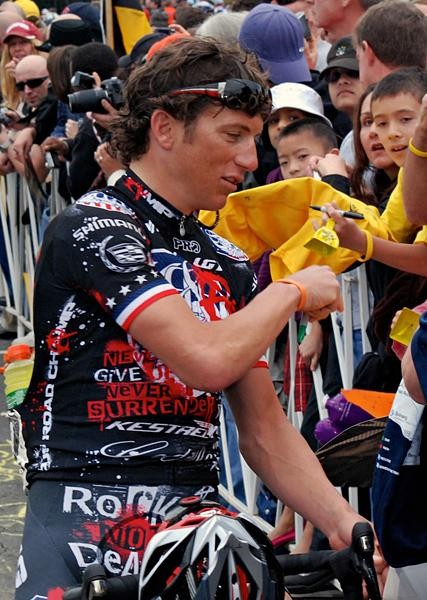Hamilton and Ball speak about suspension
Former rider looks to future off the bike

Tyler Hamilton has commented on the eight-year suspension handed down by the US Anti-doping Agency (USADA) yesterday, calling it, "unfortunate and disheartening". Rock Racing owner Michael Ball has also labelled the sanction "unfortunate".
Hamilton tested positive for the banned steroid Dehydroepiandrosterone (DHEA) earlier this year and in April he announced his retirement from the sport. The controversial American rider said the substance was an ingredient in a vitamin supplement he took in an attempt to alleviate depression, and he spoke about the illness in a public statement.
"The eight-year suspension is unfortunate and disheartening. At this time, however, my focus remains on my mother, my family, battling my depression and getting better. This has been an extremely difficult and trying period, but I am determined to get through it," said Hamilton.
"I would like to thank Michael Ball, the Rock Racing team, my fans, family and friends, for their continued support during this time. Moving forward, I am going to put a lot of my time and energy towards helping others who face severe depression overcome the obstacles this illness brings."
Michael Ball was understated in his appraisal of the situation and complimentary to the man who had defended Rock Racing's record throughout some recent trying times. "While we understand Tyler was given the minimum suspension under the current rules, it is unfortunate that this young man who has so much left to give to cycling both on and off the bike, will not have the opportunity to continue in the sport he dedicated so much of his life to," said Ball.
Meanwhile, Hamilton's lawyer Chris Manderson explained, "Tyler took an herbal anti-depressant in a moment of crisis, with no intention or possibility of enhancing his cycling performance. Despite that, the rules do not distinguish between an intentional doping violation and Tyler's attempt to self medicate for depression, and the USADA Protocol imposes a minimum eight-year penalty in this situation."
Obviously disappointed with the outcome, Manderson added, "The penalty is no different than it would be for an athlete who intentionally used testosterone in competition. USADA could not have imposed a lesser penalty even if it had been understanding of Tyler's situation and wanted to impose a sanction more fitting to Tyler's lack of performance-enhancing intent. He would have no realistic chance of reducing the penalty in an arbitration hearing.
Get The Leadout Newsletter
The latest race content, interviews, features, reviews and expert buying guides, direct to your inbox!
"Although we believe the sanction is exceptionally harsh and completely disproportional to the transgression, Tyler has chosen to focus on getting better instead of fighting a pointless battle against the anti-doping regime."